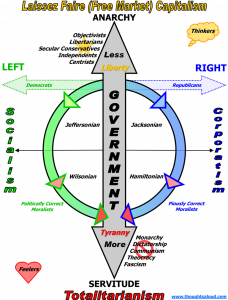 Sage Advice from Putin
Sage Advice from Putin
Wow! Who would have expected sage advice from the former head of the KGB? Here is a transcript of Putin’s speech at the opening ceremony of the world Economic Forum in Davos, Switzerland last month:
There is a certain concept, called the perfect storm, which denotes a situation when Nature’s forces converge in one point of the ocean and increase their destructive potential many times over. It appears that the present-day crisis resembles such a perfect storm.
Responsible and knowledgeable people must prepare for it. Nevertheless, it always flares up unexpectedly.
The current situation is no exception either. Although the crisis was simply hanging in the air, the majority strove to get their share of the pie, be it one dollar or a billion, and did not want to notice the rising wave.
In the last few months, virtually every speech on this subject started with criticism of the United States. But I will do nothing of the kind.
[…]
The entire economic growth system, where one regional centre prints money without respite and consumes material wealth, while another regional centre manufactures inexpensive goods and saves money printed by other governments, has suffered a major setback.
[…]
Unfortunately, excessive expectations were not only typical of the business community. They set the pace for rapidly growing personal consumption standards, primarily in the industrial world. We must openly admit that such growth was not backed by a real potential. This amounted to unearned wealth, a loan that will have to be repaid by future generations.This pyramid of expectations would have collapsed sooner or later. In fact, this is happening right before our eyes.
[…]
Excessive intervention in economic activity and blind faith in the state’s omnipotence is another possible mistake.True, the state’s increased role in times of crisis is a natural reaction to market setbacks. Instead of streamlining market mechanisms, some are tempted to expand state economic intervention to the greatest possible extent.
The concentration of surplus assets in the hands of the state is a negative aspect of anti-crisis measures in virtually every nation.
In the 20th century, the Soviet Union made the state’s role absolute. In the long run, this made the Soviet economy totally uncompetitive. This lesson cost us dearly. I am sure nobody wants to see it repeated.
Nor should we turn a blind eye to the fact that the spirit of free enterprise, including the principle of personal responsibility of businesspeople, investors and shareholders for their decisions, is being eroded in the last few months. There is no reason to believe that we can achieve better results by shifting responsibility onto the state.
[…]
[bold emphasis mine]
While the rest of the speech reveals his concern over falling oil prices, which are devastating his own economy, and nervousness over the specter of us destroying them again with another military spending spree, the above remarks were profound. I just cannot imagine one of our own politicians delivering such a frank speech in an international forum. I am glad I treated myself to reading it.
What I can’t understand is why our own academics and politicians can’t see what he acknowledges was the failure of socialism and the advantages of capitalism. It is downright embarrassing that now that the world has seen the folly of Marxism and is trying their best to free themselves of its cancer, we are plunging headlong into it. I weep for my country. â—„Daveâ–º


This was no natural event like you would see in a free market convergence. It is more like that mad scientist who creates an a weather machine of DOOM.
You are right about the sage advice though. The one I think the Keynesians need to get through their head is: “They set the pace for rapidly growing personal consumption standards, primarily in the industrial world. We must openly admit that such growth was not backed by a real potential.” This wasn’t caused by socialism, it was caused by government trying to bend capitalism to its will with indirect price fixing.